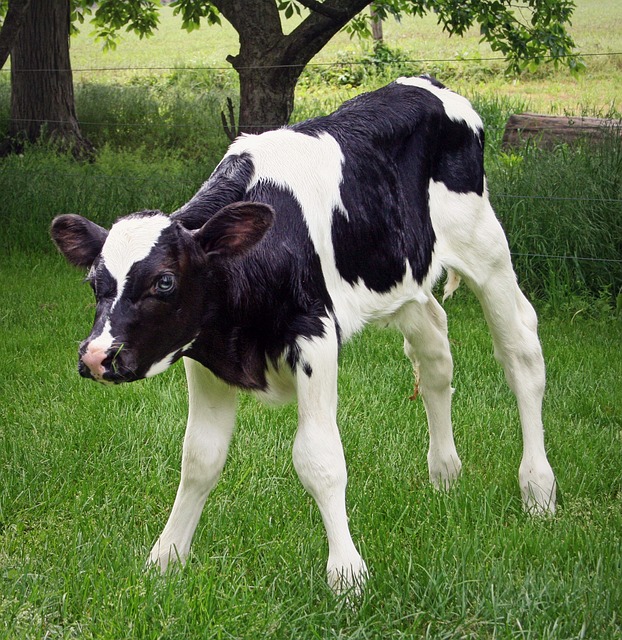Calves form the foundation of the future replacement stock. Therefore, proper management is critical to ensure continuous replacement of the dairy herd.
Feeding
A calf should consume 10 per cent (milk) of its body weight within the first one month before introducing it to solid feeds. Liquid feeds for the calf include;
- Milk replacers.
- Whole milk.
- Fresh colostrums.
- Waste milk.
- Fermented colostrums.
All these liquid feeds can be preserved and fed to the calf when fresh and help save on whole milk for sale. Note that a calf should consume colostrum within the first eight hours of life for the following reasons.
Importance of colostrum
- It is highly digestible for the young calves.
- It is very rich in antibodies hence important in imparting passive immunity to the young calves.
- It helps in the removal of the first faeces- meconium.
- It is very rich in vitamins and minerals.
Solid feeds for the calf
A calf should be introduced to solid feeds as soon as possible to encourage rumen development to enable it digest fibrous feeds and hence save on expensive liquid feeds. Examples of solid feeds for the calves include.
- Quality fodder/pasture.
- Early calf weaner pellets.
- Early calf weaner meal.
General management
- Disbudding or dehorning
- Removal of extra teeth.
- Castration.
- Acaricides spraying.
Calf health
Common calf diseases are;
- Scour (diarrhoea).
- Coccidiosis (bloody diarrhoea).
- Salmonella and viral pneumonia.
With good husbandry practices, the farmer should be able to control these diseases. In this regard, hygiene and sanitation is key. Proper housing is also important and avoid wet conditions at all times. All equipment used for feeding should be cleaned and sterilised. When the calf is seriously ill or a large number of calves are affected, expert veterinary assistance should be sought.
Heifers
The aim is to:
- Reduce the interval between weaning and the first lactation at two years.
- Increase the number of calves.
- Fasst genetic improvement.
- Lower death losses.
- Achieve a growth rate of 0.5-0.7kg per day.
Management
- Offer quality forage and concentrate as supplement.
- Deworm the heifers regularly, that is, after every two to three months.
- Control external parasites by use of effective acaricides. A daily supplementation of about 1kg of compounded feed supplement is ideal when the herbage quality declines.









